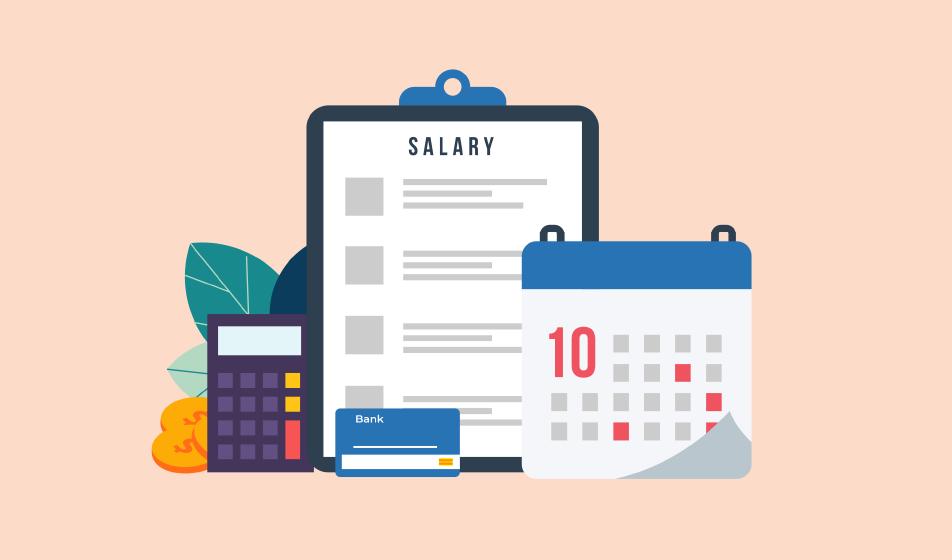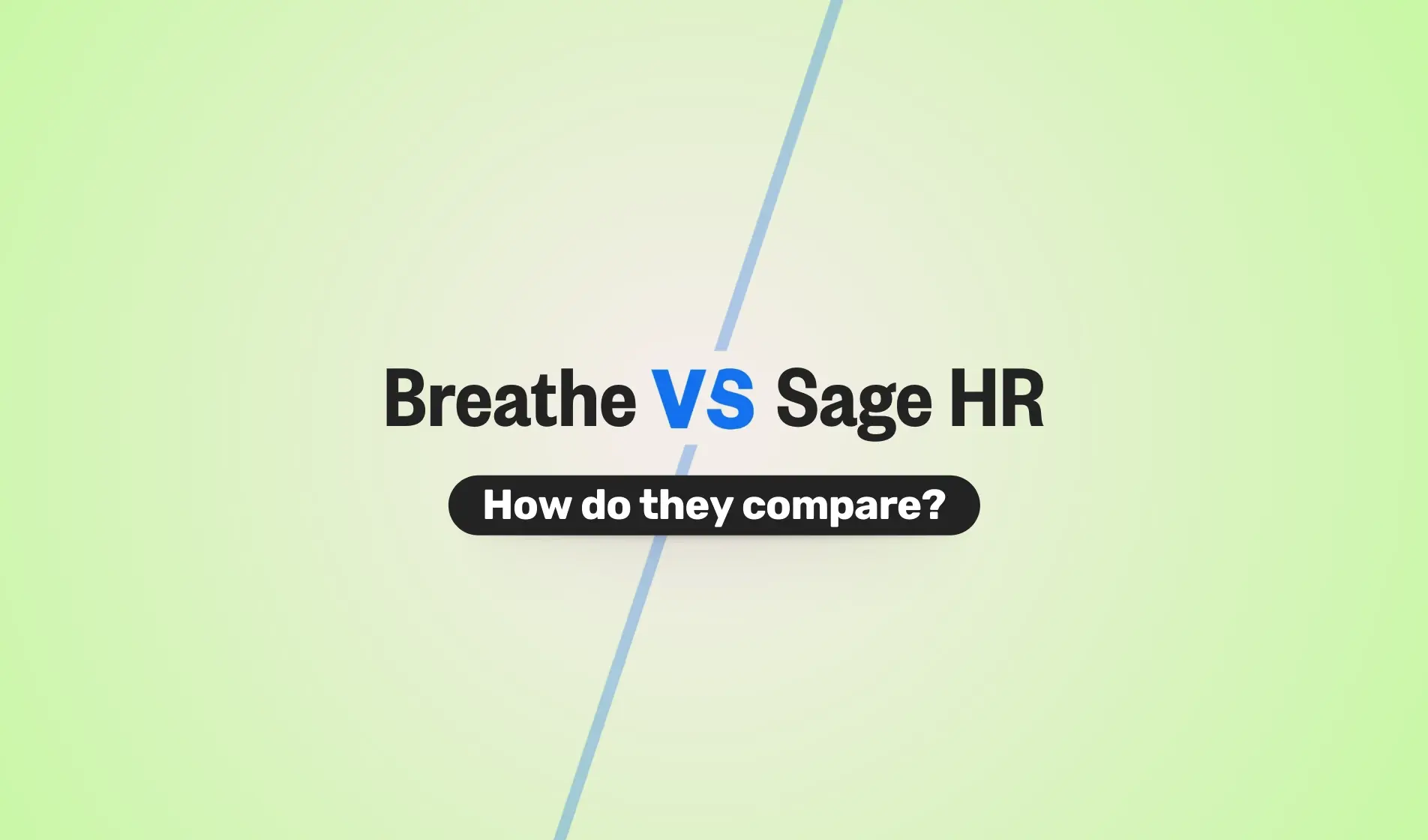Unsure whether to take the plunge and invest in HR software? With so many options out there, it can be difficult to work out what will benefit your business the most.
Read on to learn more about HR software and the benefits of human resource management systems.
Skip to:
5 SME benefits of using a HR management system
Why use HR software?
HR software streamlines processes & makes managing people simple, saving you (and everyone else) a lot of time. Spending less time wading through manual admin and your can focus on the things that keeps your employees happy and focused on the job.
The most valuable and important resource in your company is not your office building or your warehouse, it’s the people who work there. That’s why it makes good business sense to look after your employees and help them work at their best. As Richard Branson famously once said: "Look after your people and they will look after your customers. It's that simple".
What does a HR software do?
At its simplest, HR software – sometimes known as an HRIS, or human resource management system – is a tool that streamlines systems & essentially makes managing people easier- and quicker.
It does this by automating processes that might have taken a lot of admin to manage on paper or via spreadsheet, such as requesting & approving holiday. HR software helps you keep track of the tasks, data and processes involved in people management.
5 benefits of using a HR management system
1. HR software saves you time
The number one benefit of human resource management systems is the way they free up time. Automate time-consuming people management tasks and you’ll have more time to spend on business-driving activity.
Staying on top of basic employee information can quickly become a nightmare if you rely on paperwork and filing cabinets. Just think, how long does it take you to dig out holiday request forms to find out how much holiday time your team has left?
HR software saves you time by helping automate simple processes such as holiday allowance, absence tracking and training. It can also help you streamline processes to increase overall productivity and work management.
"The user-friendly nature of the site has made the transition smooth and we now almost can't remember what life was like before Breathe. I would warmly recommend it to anyone wanting an easier life. Using Breathe saves us so much time."
Sofie Franzen - Director, The Bridge Community Education Centre
2. Instant access to your data
Everything you need to know is readily available in one central place. You won’t need to memorise complex codes or carry heavy files around.
You don’t even need to worry about being logged into your company network, making HR software ideal if you work from multiple locations or have a remote team.
“My 24/7 HR partner, always at my side to back me up in any meeting. With just a couple of clicks I have the answer to a myriad of questions that are likely to be posed about any one of my staff; information which I couldn't hope to regurgitate from memory. My huge filing cabinet full of personal files isn't very mobile, Breathe is there for me, every day, every meeting, whatever I need to know, at the click of a couple of buttons. Just brilliant.”
Emma Comben - People Operations Manager, Fuel3D
Readily available data makes decision-making easy. It also makes poor decision-making less likely, because you’re not relying on outdated or inadequate information.
What’s more, sophisticated HR software lets you dig into analytics to solve problems and spot trends. For example, is there a particular role with a high turnover? Use your software to find out if those employees were getting enough training or having enough one-to ones with their line manager. HR software makes collecting and accessing this data easy.
3. HR software makes it easier to develop your employees
Employee development is fundamental to the long-term success of your business. You can improve
retention by engaging your employees so they’re less likely to leave for a job elsewhere.Keeping track of employee development is yet another of the benefits of a human resource management system. You can use it to log performance reviews, training courses, objectives and qualifications.
HR software will even remind you and your managers to hold regular one to ones and helps you turn these meetings into more meaningful coaching conversations. This in turn can help you focus on your employees’ career development; a proven factor in improving employee engagement and retention.
4. HR management systems are more secure
The days of filing cabinets are long gone. Or are they? Many SMEs are still keeping sensitive employee data in a filing cabinet. Improved security is a significant benefit of human resource management systems and one that will help you comply with GDPR.
Cloud-based HR software also protects your precious employee data from physical catastrophes such as a flood or fire; you can access your data from anywhere using your computer or device. Look for systems like Breathe which have been ISO 27001 certified for the high level of security they provide to protect your data.
HR software gives you a full document management solution from knowing who reads what to increasing productivity by reducing paperwork.
It's also an easily accessible place to archive old documents, policies, staff handbooks and training manuals. Want another benefit? Printing fewer documents means you’ll be on your way to becoming a paperless office.
5. HR software helps you monitor leave and sickness more easily
Having a problem with sickness absences or a rush of annual leave requests can crush a small team. HR software helps you set up an easily accessible holiday planning system and understand the background behind each absence.
But better than being a glorified calendar, good human resource management systems benefit your SME by calculating pro-rata entitlements, keeping track of remaining leave and helping you manage holiday requests.
HR software also makes things easier for employees – they can request holidays at any time, no matter where they’re working. The result? No more messy, time-consuming, email trails. Who wouldn’t want that?
Discover the benefits of HR software for your SME
So, there are our top 5 benefits of HR management systems. But why not try for yourself? Join thousands of UK SMEs managing their people (and reducing their admin) with Breathe.
Why not start your 14-day free trial today? (No strings, no credit card needed).

Author: Aimée Brougham-Chandler
An IDM-certified Digital Copywriter (2023) & English Language & Literature graduate (BA Hons), Aimée is Breathe's Content Assistant. With 3 years' content marketing experience, Aimée has a passion for writing - and providing SME HR teams with solutions to their problems. She enjoys delving into & demystifying all things HR: from employee performance to health and wellbeing, leave to company culture & much more.






